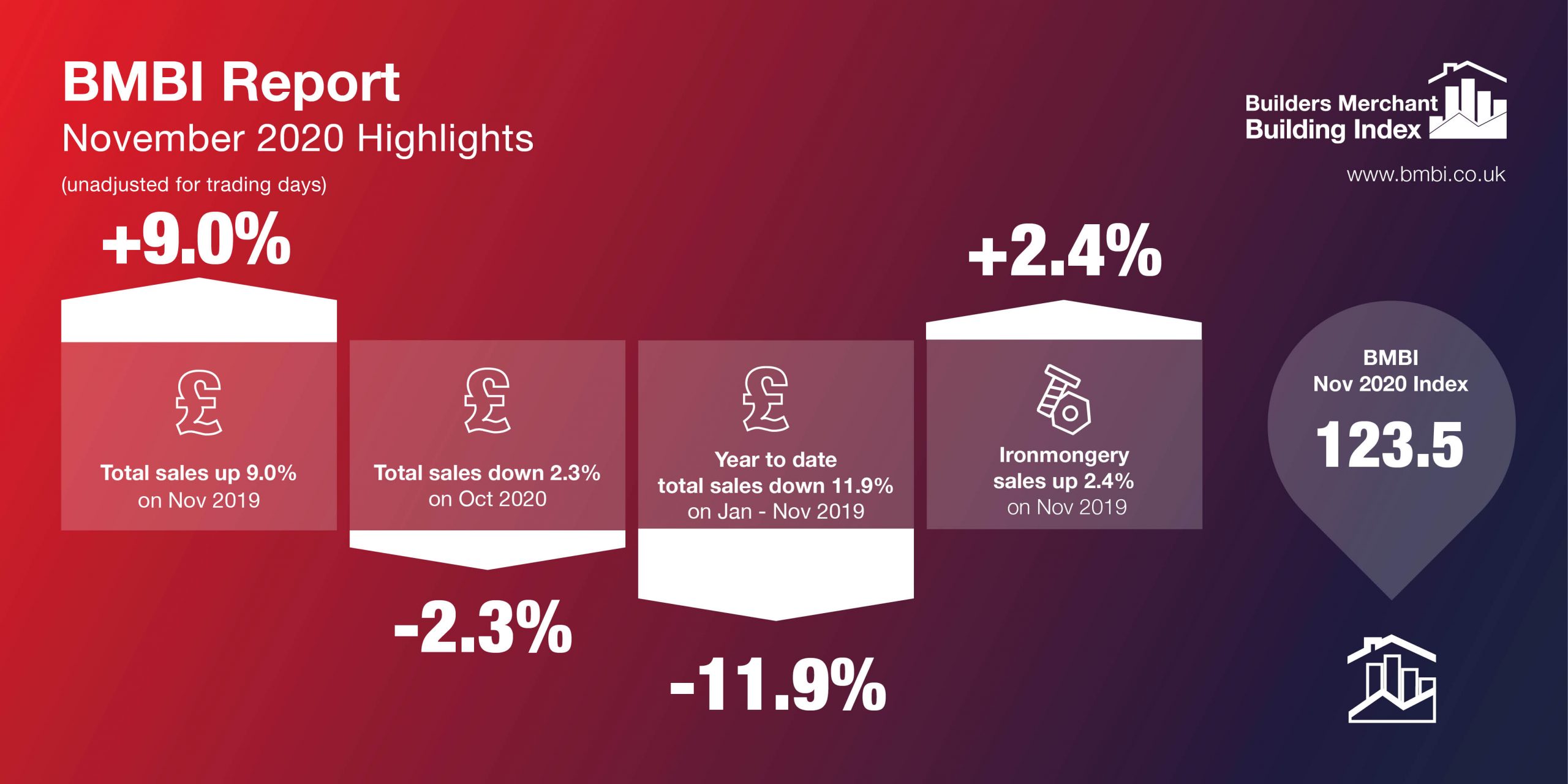RCI Column – Builders’ Merchants’ sales grow 9% despite second lockdown

The latest Builders Merchants Building Index (BMBI) report, published in January, confirms that value sales to builders, roofers and contractors in November 2020 saw its largest year-on-year increase since March 2019, despite stricter Covid-19 restrictions being in place for most of the month.
Year-on-year
With builders heeding the Government’s directive to keep construction sites open, total sales in November 2020 were 9.0% higher than in November 2019. Growth over the period was driven primarily by Landscaping (+29.3%) and Timber & Joinery Products (+16.3%). Sales of Heavy Building Materials (+8.7%) were also above last November’s level.
Quarter-on-quarter
Total sales in the three months September to November 2020 were 5.7% higher than the same three months in 2019. Landscaping (+25.6%) was particularly strong, with Timber & Joinery Products (+10.6%) also doing well.
Index
November’s BMBI index was 123.5, with Timber & Joinery Products strongest at 139.9. The index for Heavy Building Materials stood at 119.4.

Neil Hargreaves, Managing Director Knauf Insulation and BMBI’s Expert for Mineral Wool Insulation, comments: “I write as we operate through another national lockdown, with the industry specifically instructed by the PM to keep building. Covid will clearly continue to be a source for uncertainty well into 2021. Nevertheless, there are reasons to be optimistic about the health of the construction industry, and in particular the level of demand for Mineral Wool insulation.
“After the initial Covid shock last spring, Mineral Wool sales rebounded strongly. This was partly due to pent-up demand post-lockdown, but we’ve also seen a healthy flow of new sites opening up around the country as the property market remains buoyant – even if a slowdown is anticipated if and when the stamp duty holiday ends.
“In the short term, it appears as though the Green Homes Grant may lift the insulation market further. And it now appears likely that the scheme will be extended, giving more time to iron out issues in its execution. But there are other policy changes poised to exert a more dramatic influence in 2021 and beyond.
“At their root is a fundamental shift away from notional energy performance standards to measurement of the actual performance of buildings in the real world. The government’s EPC Action Plan mandates that future Energy Performance Certificates will be based on measured ‘in-use’ building performance. That same requirement for real performance also features in the criteria for the Social Housing Decarbonisation Fund Demonstrator – the precursor to an anticipated £3.8bn of funding.
“With the result of the Part L 2020 consultation to come, there’s a clear direction of travel, and it will have an impact on insulation buying habits. We’ll see much greater emphasis placed on products that are easy to install correctly; high performance products that aren’t compromised by common installation issues on site. That’s likely to translate into increased demand for Mineral Wool insulation because it’s inherently more forgiving of substrate inconsistencies in cavity walls.”
This article was first published in the RCI Magazine‘s February edition.



